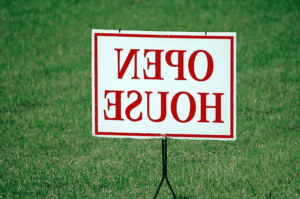Homeowners Associations are supposed to be ‘by the people, for the people’ associations that cater to maintenance and improvement needs of members under their cap, but it doesn’t always play out without hitches. Both, members and board members in an HOA, have certain rights that, if infringed, can be taken to court.
HOA lawsuits are sometimes the only way members can find a fair settlement for any given issue the association is causing but suing HOA isn’t as easy as it seems on paper. When you buy real estate in Las Vegas, you sign a contract agreeing to mandatory membership as mentioned in the Declarations of Covenants, Conditions, and Restrictions (CC&Rs).
In this article, we will look at what you can expect when you decide to sue the HOA of your community.
HOA Cases – A Few Examples
Before we get into the meat and potatoes of the matter, let us first consider some examples.
In the year 2006, the Tuscany Hills Landscape & Recreation Corp HOA filed a lawsuit against Gloria Healy when she complained about her access to the community. When nothing was done, she went public and that’s when the defamation lawsuit was filed.
In 2009, the Echo Valley Condominium Association HOA was subject to a lawsuit by Phyllis Davis for discrimination. She had complained to the HOA about smoke from her neighbor’s condo, which affected her asthma, but the HOA did nothing. She filed a discrimination case, which was rejected in court.
The Orchard Estate Homes, Inc. v. The Orchard Homeowner Alliance in 2019 for unfair Amendments to CC&Rs, Highland Greens Homeowners Ass’n v. De Guillen (In re De Guillen) in 2019 for unfair liens, and more are examples that you can go through as well to see what HOA lawsuits and their results look like.
The Secrets of HOA Lawsuits
If you meet the HOA board before signing, you will only see happy faces and get all the assurances in the world that nothing of the sort happens here, and if it does, you have the right to sue. However, the demeanor changes if you actually go ahead and sue HOA.
Here are some impacts of suing HOA that you need to know before going forward with it:
HOAs Will Go to Lengths to Blame the Victim
The moment you or your attorney serve the first notice, you will find that things will immediately begin getting better – for your neighbors. The HOA’s first objective would be to wear you down financially and emotionally and the best tool for that is to attack your reputation.
HOAs need to maintain the status quo, and to do that, they will try to make an example out of you. HOAs immediately start acting on other people’s request because the more people are with you, the more they’re against them.
By being nice to neighbors and harsh to you, fear starts to settle in, thus creating an environment of apathy in the community, directed against you and your family.
Expect to Pour in a Lot of Time & Effort
Litigations against HOAs are expensive – third mortgage expensive. Expect a bill of at least $100,000 after the case is done, assuming the court doesn’t reward legal fees to the HOA as well. Keep in mind that the CC&Rs you signed at the start are written by the developers and therefore protect HOAs in most matters.
Then, expect a long list of letters, invoices, receipts, notices, and more. Legal teams have paralegals for this; you’ll just have your significant other.
You’ll Find Animosity Directed Toward You within the Community
Expect to be shunned by the community as HOAs label you disgruntled, unreasonable, or troublemakers. This is where you’ll find out who your real friends are. The same will go for your family as well, and the dispute will strain your personal life and can even follow you to work. The strain on relationships may lead to your kids being bullied in school and therefore family stress.
Your significant other may want to give up and settle, but even if you do, at this point it may be too late. You will be branded as the black sheep.
The HOA May Ignore You
Once the litigation process begins, you may find that the HOA will start hiding things from you. Communication between you and the HOA – even for little things – will be done through attorneys. Furthermore, your requests may either be ignored or outright rejected as they don’t cooperate with you anymore.
This is one of the most common problems families tied in HOA lawsuits face. From regular maintenance staff to management, everyone ignores them. Many families have also received cease and desist letters from HOA attorneys, accusing them of harassment.
Unfortunately, Retaliation Isn’t Out of the Question
Depending on the type of board members, you may actually start getting bullied and find that the HOA is retaliating against you. This may include aggressive and abusive behaviors, causing unnecessary disruptions in utilities, humiliation, and more. These are things that you simply can’t prove in court.
Again, all of this is done to damage reputations.
You Are Forced to Move
No one will say it, but you’ll know that it’s what everyone wants; even yourself. You may be pressured because of the external circumstances and even your family; Unfortunately, in the heat of legal battles, selling your home won’t be that easy. HOA can file liens or other claims on your property, rendering it unmarketable.
Even if you win the HOA lawsuit, the community will still claim you to be the black sheep. You’ll have to start over in a new neighborhood.
HOAs often reach out to plaintiffs (or even defendants) and ask them for an out-of-court settlement. This often happens when HOAs know that if word gets out, damage control may be difficult. One condition of these settlements is a ‘gag order’, i.e., keeping the details confidential.
Before you reject the offer, remember that there is always room for negotiation. Since they’re asking you to keep quiet, you have room to ask for a bigger settlement. However, you should also remember that HOA lawsuits are never a fair fight. The CC&R you signed – the foundation of your lawsuit – are themselves shaped in favor of the HOA.
Disclaimer: There are numerous factors to consider in every investment, including real estate. The information provided above is just a matter of opinion and can change with time. It shouldn’t be construed as legal or tax advice; neither does the report constitute a financial promotion or investment advice. It is general information and before making any such decision, you should seek out licensed professionals and see all ends clearly.




